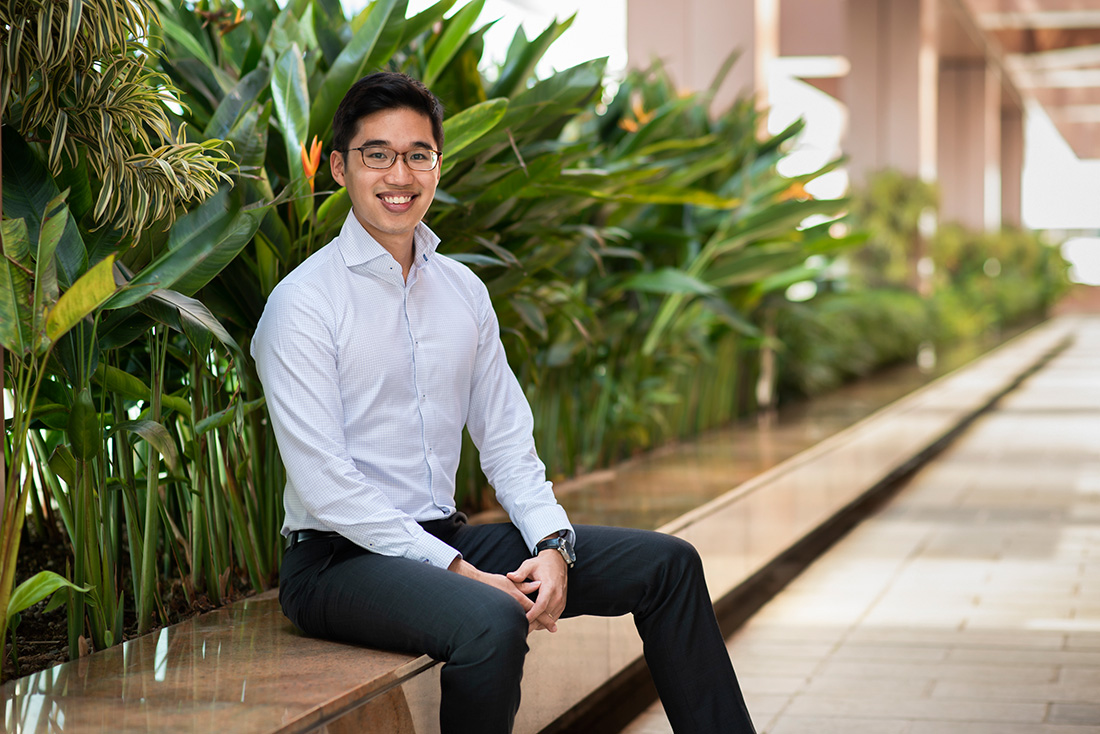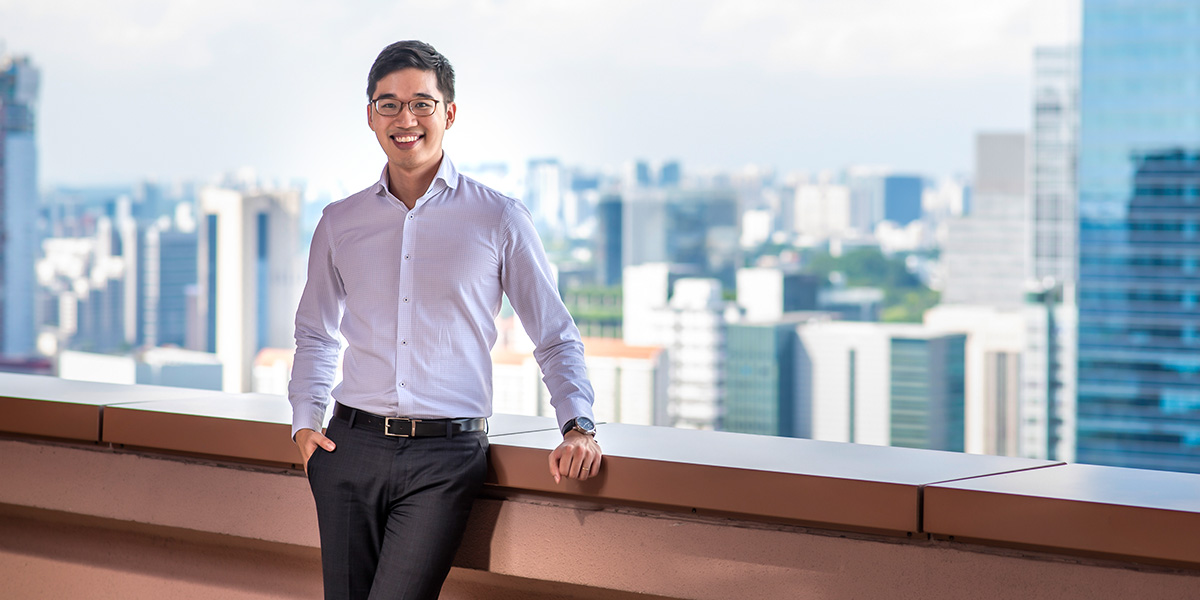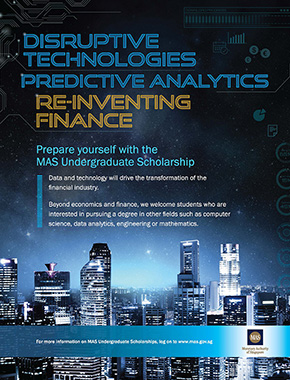The Asia Pacific remains one of the world’s fastest growing regions, and with a robust banking sector of over 200 banks and close to 800 companies choosing Singapore as their preferred listing location, Singapore keeps her economy strong and competitive by striving to retain her status as one of the region’s leading financial hubs.
This is made possible through the Monetary Authority of Singapore (MAS)’s commitment to and investment in helping their people pursue their aspirations. To build a team of talented officers who hail from diverse backgrounds, yet share the same drive to grow and excel, is no easy feat.
MAS Undergraduate Scholar and President’s Scholar, Moses Soh, 25, is one such talent. An Economist in the Macroprudential Surveillance Department (MSD)—which conducts surveillance of the financial system to identify emerging trends and vulnerabilities, and monitors developments in regional and international financial markets—he shares his scholarship journey and provides an insight into what it’s like working in this unique and influential institution.
What do you find most fulfilling and challenging about your role as an Economist?
Moses: My current portfolio includes monitoring Europe as well as assessing financial stability risks from crypto-assets and financial technology in our financial system. For our work monitoring Europe, we analyse regional developments using data across markets at both macroeconomic and institution-levels. I enjoy the broad mandate, and appreciate that my role allows me to increase my facility with data analysis, develop familiarity with geo-political developments and financial markets, and sharpen the analytical skills required to understand fast-changing situations.
I like the fast pace of learning in MAS – each situation is unique, and yet we have to be extremely quick and responsive. For example, during the emerging market volatility last year, I had to familiarise myself with the dynamic situational developments, examine the financial and economic indicators, and provide an analysis quickly whenever it is needed.

Moses Soh
MAS Undergraduate and Postgraduate Scholarship Recipient
Economist, Macroprudential Surveillance Department (MSD)
Bachelor of Science (Economics)
– University of Pennsylvania, Wharton School of Business
Master of Finance – Princeton University
Graduate Certificate in Artificial Intelligence
– Stanford University
I also enjoy the opportunities for original thinking and learning to work in areas where the path to an answer may not always be well-trodden. The financial sector is extremely dynamic and new risks are constantly on the horizon. In our crypto-asset work, we’ve developed novel ways to use unconventional data sources, such as the Bitcoin blockchain and trading platform APIs, to monitor crypto-asset markets. We could only do this because there were people with both a programming background and an interest in financial stability on the team – you can add real value here if you’re willing to bring a unique interest or skillset and apply it to the problems that central banks and regulators are thinking hard about.
With MAS sponsoring your studies, how has your time overseas benefitted you, especially your study of artificial intelligence with Stanford University?
Moses: Studying overseas was a life-changing experience. I took my first programming course in university and loved it. Many afternoons and evenings after that were spent working on my own web and data analytics projects to accelerate my learning, but I confess that I had always thought it would be a personal interest – not something I could use at MAS. But as MAS sponsored my AI programme at Stanford, I started to see opportunities to use these skills in my current environment. For example, we got a chance to use machine learning and AI techniques to build tools that enable more granular surveillance of the property market.
I also had a chance to intern with a private equity firm which is very involved in the technological industry, in Silicon Valley during my summers in the United States, as well as a hedge fund. This provided a front-row seat to two major trends affecting finance—the close relationship between finance and technology, and the growing role of non-bank financial institutions such as asset managers—which continue to be relevant to my work today.
Being able to learn skills like data analytics, machine learning, and techniques to implement artificial intelligence from world-class institutions was an incredible opportunity. But beyond that, my most significant takeaway was seeing the hunger of the international pool of students. It made me realise how high people are setting the bar for themselves, and raised the expectations I had of myself. I suspect this will linger with me long after the last wisps of linear algebra and Python leave my brain.
What’s the working culture at MSD and MAS like?
Moses: It’s a very team-oriented culture. Within my department, there are always a lot of conversations and discussions. Guidance is always readily provided, though we are given the space to do our own independent research and break new ground. In the crypto project, the technical know-how I supply has to be relevant to our work, so I work with my supervisors to shape my analysis, drawing upon their experience in MAS. This is possible because we have an open and supportive environment where we can draw on the expertise of various teams, as and when we need their help at different stages of a project.
Being an integrated financial regulator, it helps that MAS has regulatory, developmental, and central banking functions under one roof. For topics like digital tokens, which have regulatory implications, and are of increasing relevance to our developmental work, this allows for rich, multi-faceted discussion which we wouldn’t have if the functions were separated.
What advice would you give someone looking to apply for a scholarship?
Moses: Ultimately, you are going to make a choice based on whatever information you have. But once you’ve made that choice, it’s up to you to make it the right one. We are in control of shaping the attitudes we bring to work, the skills we pick up, and how we want our work to develop.

